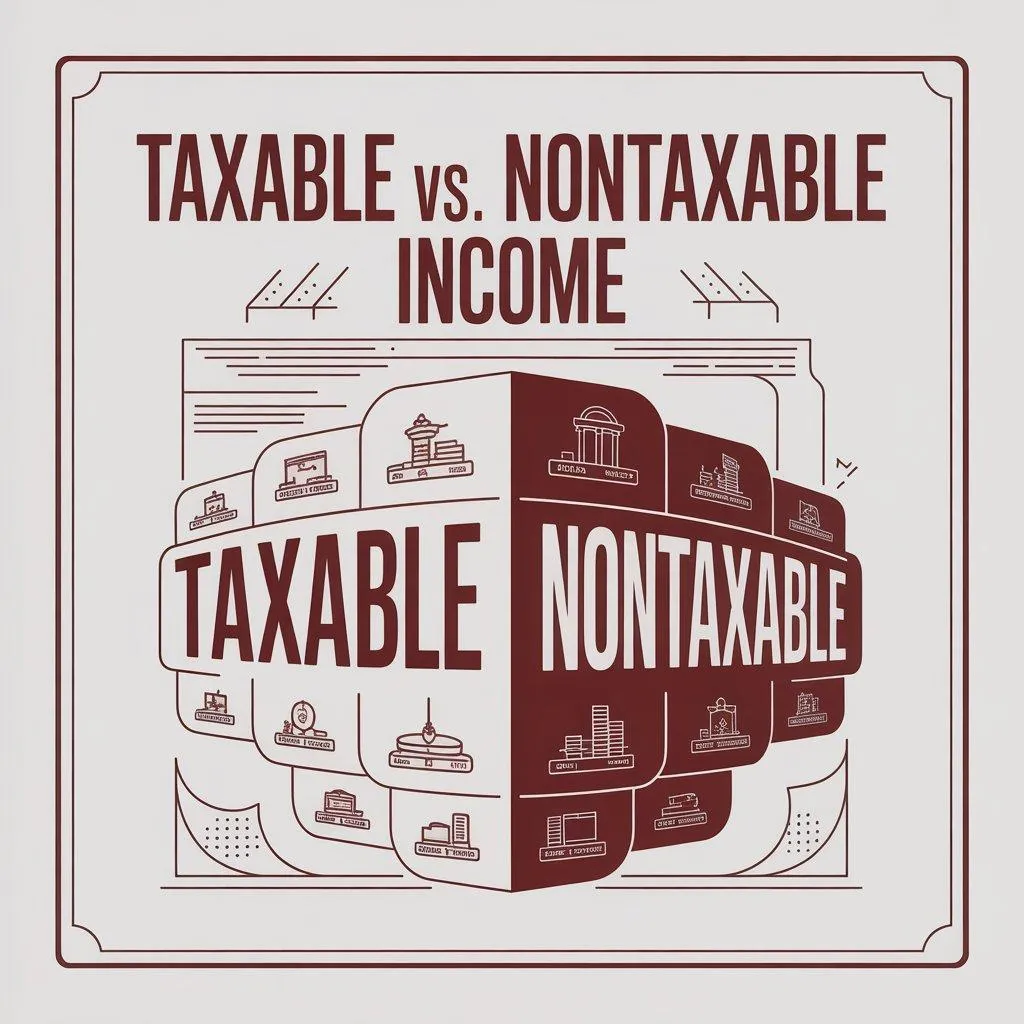
Taxable vs. Nontaxable Income: What Every Entrepreneur Should Know
As an entrepreneur or small business owner, understanding your income is more than just knowing how much money is coming in—it's about knowing what type of income you're earning. Why? Because not all income is treated the same when it comes to taxes.
Knowing the difference between taxable and nontaxable income can help you avoid costly mistakes, stay compliant with IRS regulations, and even make smarter decisions when you're applying for small business funding solutions or credit repair and audit services.
Let’s break it down together.

What Is Taxable Income?
Taxable income refers to the money you receive that the IRS expects you to report on your tax return. Most types of income fall into this category. Here are some common examples:
Wages or salaries from a job
Self-employment income
Interest and dividends
Rental income
Business profits
Unemployment benefits
If you’re running a business, your profits are considered taxable income. This means your sales revenue minus business expenses must be reported. That’s why it’s crucial to have good bookkeeping habits and a financial strategy in place—which is exactly where business financial consulting services come in handy.
What Is Nontaxable Income?
On the flip side, nontaxable income is money you receive that you don’t have to pay taxes on—at least under certain conditions. Examples include:
Gifts and inheritances
Life insurance payouts
Child support payments
Certain types of disability benefits
Municipal bond interest
However, context matters. For instance, while life insurance proceeds are generally nontaxable, any interest earned on them may be taxable. Always double-check with a tax professional or consultant to understand how each source of income applies to your unique situation.
Why This Matters for Entrepreneurs
If you're seeking financial education for entrepreneurs, you need to understand how different types of income impact your financial standing. Here’s why:
Funding eligibility: Lenders often assess taxable income when considering you for small business funding solutions.
Creditworthiness: Your reported income affects your ability to secure credit and qualify for credit repair and audit services.
Legal compliance: Misreporting income can lead to audits, penalties, or worse.
When you’re setting up your business, consider also investing in business formation and compliance assistance to make sure your income reporting structures are legally sound.
How to Stay on Top of It All
Here are a few tips to keep your income reporting crystal clear:
✅ Track every dollar: Whether it's taxable or not, document your income streams.
✅ Consult a professional: A business financial consultant can help you categorize your income accurately.
✅ Stay compliant: Use the right software or partner with experts who offer credit audit services and business setup guidance.
✅ Get educated: The more you understand, the better decisions you'll make for your business.
Final Thoughts
As you continue building your business, don’t let income classification trip you up. Understanding the difference between taxable and nontaxable income is key to staying compliant, protecting your profits, and positioning yourself for success.
Need help decoding your income streams or preparing for funding, and even tax planning? Let’s talk. Book your free 15-minute strategy call today and get the guidance you need:
👉 https://calendly.com/consultwitherika/15-min-strategy-call

